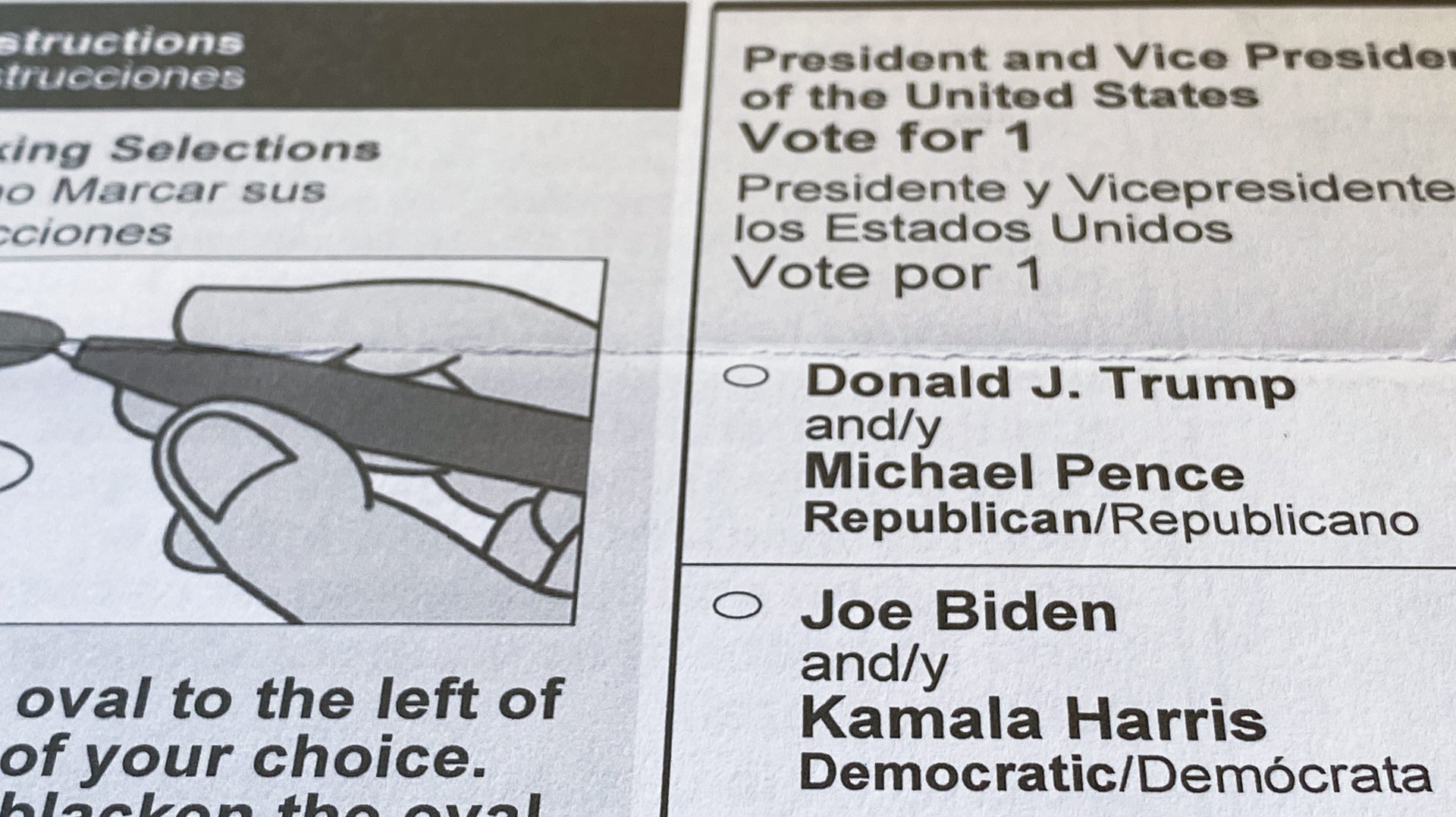Who is the Republican nominee if Trump dies before the election?
US president Donald Trump has tested positive for Covid-19, along with his wife Melania, and is isolating in the White House.


US president Donald Trump has tested positive for Covid-19, along with his wife Melania, and is isolating in the White House.
According to official statements, the president is “fine” and is “in good spirits,” though it’s not clear how long it’s been since he was infected, which means his condition might worsen in the next few days. Symptoms of Covid-19 usually emerge within five to 10 days from the infection.
Although most cases of Covid-19 are mild, as an obese 74-year-old man, Trump is at higher risk of developing severe complications. A serious case of the disease might incapacitate the president from conducting his campaign, not to mention his presidential duties, for weeks—months, even. Trump might even need a ventilator and have to be placed in a medically induced coma. Even without the increased risk factors of gender and weight, people in Trump’s age group have about 11% mortality risk if they contract coronavirus.
Should the president be incapacitated or even die, the US constitution has a plan for covering his responsibilities. Vice-president Mike Pence, followed by House speaker Nancy Pelosi, are in his line of succession, and would take his place either until he recovered or until the end of his mandate.
But what happens with the election? Does an incapacitated (or worse) Trump stay on the ballot?
He very likely does.
The Republican party’s rules to replace a presidential candidate on the ballot—because of illness, death, or withdrawal—outline two options. The first is to have the 168 members of the Republican National Convention (RNC) select another candidate by a simple majority vote. The second is to reconvene the actual convention, with the 2550 delegates who named Trump the nominee, and pick an alternative to put on the ballot.
However, it’s too late for that. The vote will have to happen between 10 and 20 days after RNC members (or convention delegates) are convened, which would mean the decision wouldn’t be reached till about two weeks from Nov. 3.
People have already been voting for weeks around the country (and the world), and since the election likely won’t be postponed, those votes would have to be counted. Ballot access deadlines have passed in all states, so it’s simply too late to change the ballot.
This doesn’t make Pence the default candidate either: While he would replace Trump till the end of the presidency, he is not the automatic substitute nominee.
So, who decides then, if not the Republican party? The electoral college does.
Most states have some kind of regulation as to how members of the electoral college should vote. In those states, what they would be allowed to do would depend on whether there are explicit provisions about voting for a replacement presidential candidate. In the states where such rules don’t exist, the state elector can simply make their choice.